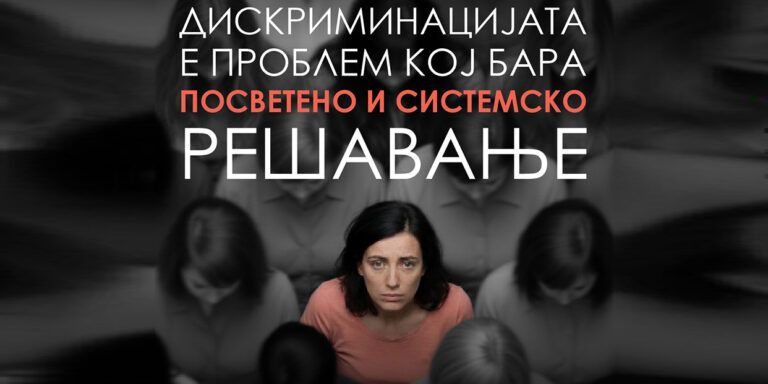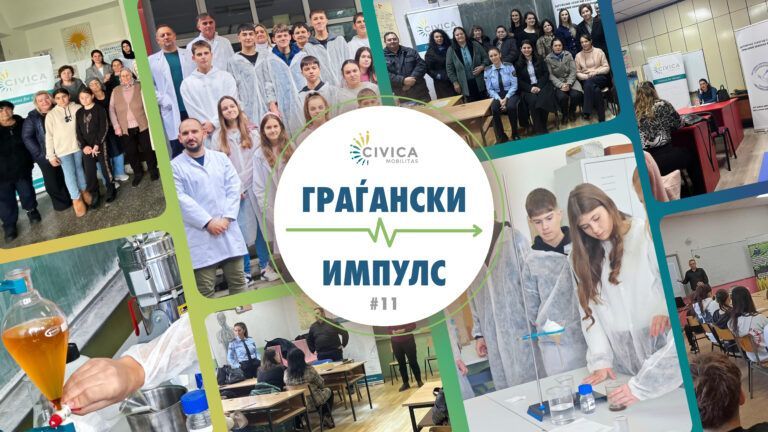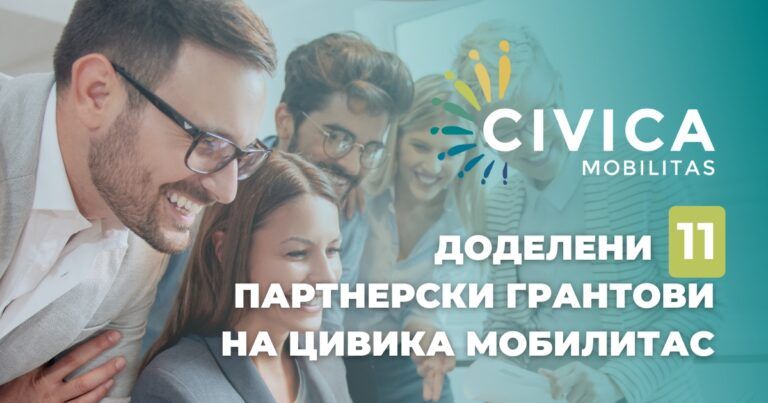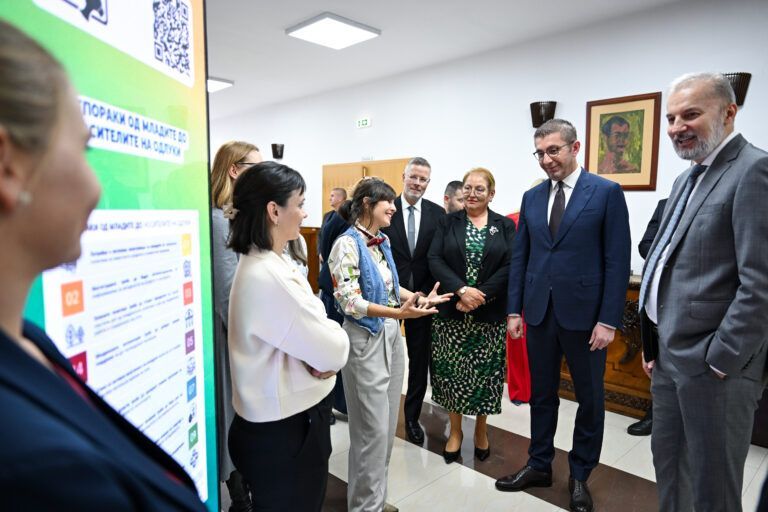ARE THE ORGANIZATIONS ATRIBITED THE CHANGES THAT THEY HAVE MADE?
“We like to say that our society is inert, that it reacts slowly to everything that happens. However, I think that the energy accumulated in the past years flew and united with the civil society organizations and that is how the Multicoloured Revolution happened. I believe that it was the democratic transformation of the society, because it was finally visible how big the space, energy and breadth of everything that the people sent as a message”, said Natasha Gaber Damjanovska in her introductory speech during the national forum “We, The Changemakers”, which took place on 1 December 2018.
Around 180 citizens and activists participated in the interactive debate discussing the role of the civil society, the changes in the past four years, polarization, trust in the organizations and possible solution to overcoming the challenges.
Eli Chakar, advisor at the Ministry of Local Self-Government focused on the changes that took place in the past period, such as: establishing the Council for Cooperation between the Government and the Civil Society Organizations, as well as the Open Government Partnership initiatives. She also stressed that the next biog challenge will be “One Society for All” concept, whose preparations are underway.
Iskra Tikvarovska Kazandziska who has been working on the social responsibility at EVN spoke on the relation between the organizations and business sector. She stressed that at the moment, the civil sector has not been sufficiently recognized by the business community, and the latter insufficiently uses what the civil sector has to offer. “When you ask the companies where they grant most financial means in the area of social responsibility, the religious communities, sport organizations, sport clubs, etc. are mostly present. CSOs are at one of the last places”, she said.
German Filkov from the Centre for Civic Communications also spoke about the unrecognized role of the CSOs. He stressed the fight against corruption, fight about the rights of the marginalized communities, changes in the law on public procurement, changes in the law on access to information of public character, etc.
According to Albert Musliu, the Association for Democratic Initiatives, CSOs should not change things but rather initiate them, because in the opposite case, they should be part of an institution or political party. “We do not have our sovereignty via popular vote. We have it based on our objectivity and neutrality on some issues, and in such a politicized society it is not always easy”, he said.
Stojan Velkov spoke about the challenges that his organization Zdrava kotlina (Healthy Valley) faced; it has been established because of the problem with the Ilovica-Shtuka mine. He stressed that it is visible that the citizens still no dot have trust in the civil sector, and in order not to be labelled, the organization does not submit projects that they would use to finance their activities. This makes their position even more difficult since they need funds to broadly inform the population and explain the problem.
The audience joined the debate via interactive voting on various themes that were being discussed. The majority thought that the civil sector had the biggest impact in overcoming the political crisis. The people present thought that the civil sector was polarized as the society in general and the joint platforms to address the problems were the best solution to overcome this polarization.


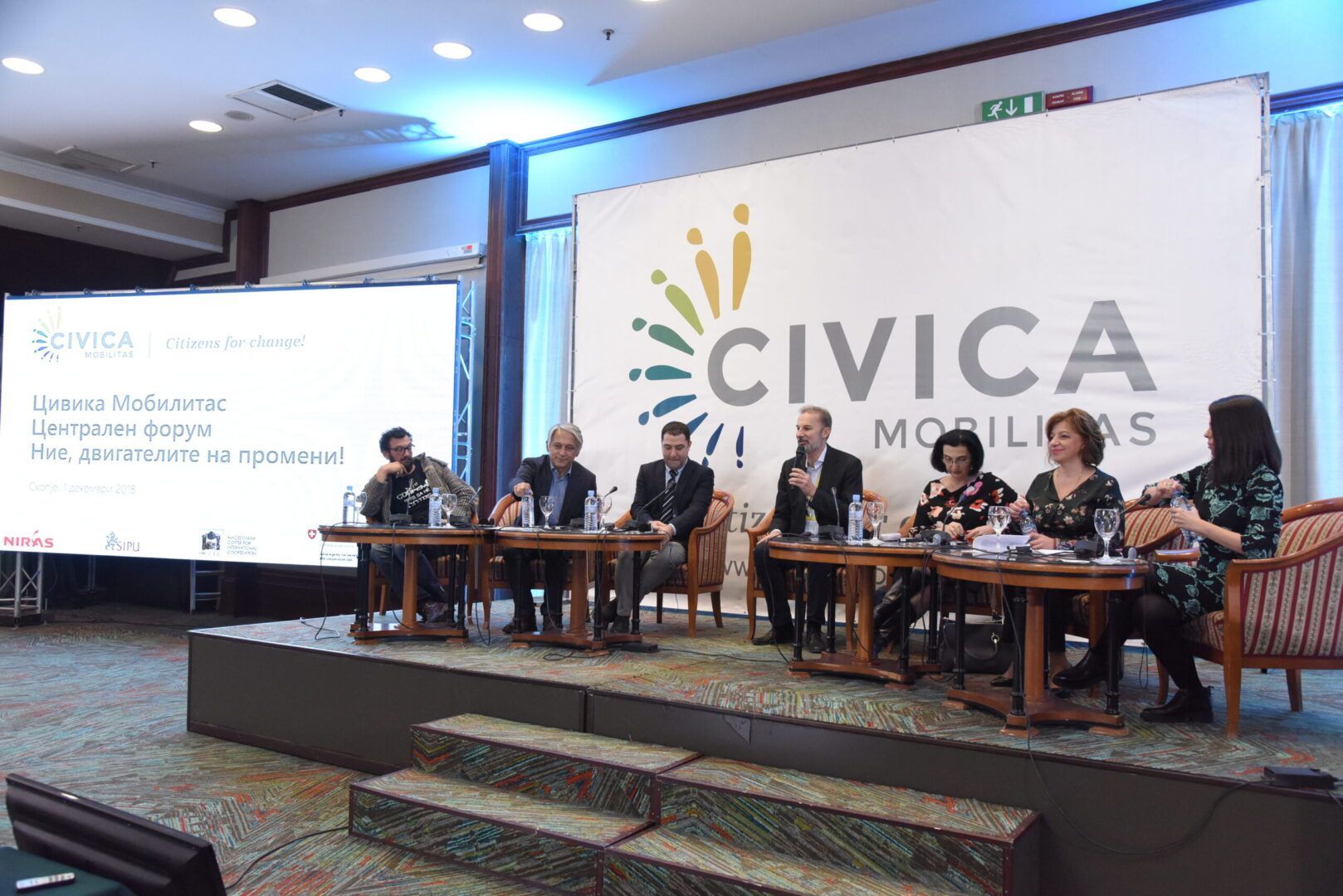
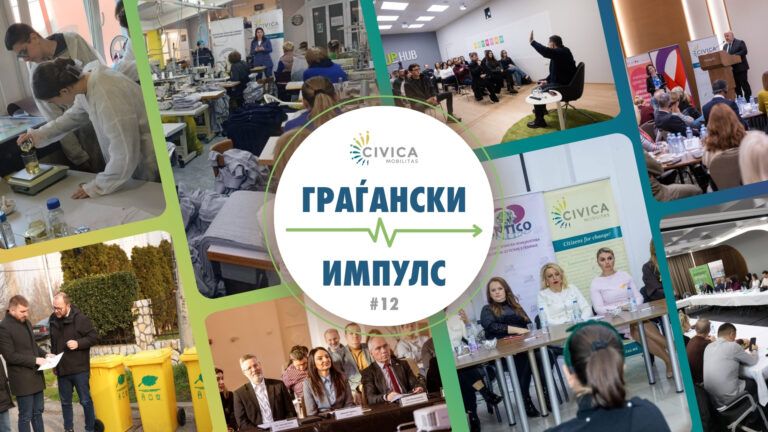
![Sre]ni praznici(2)](https://civicamobilitas.mk/wp-content/uploads/2025/12/sreni-praznici2-768x432.jpg)
